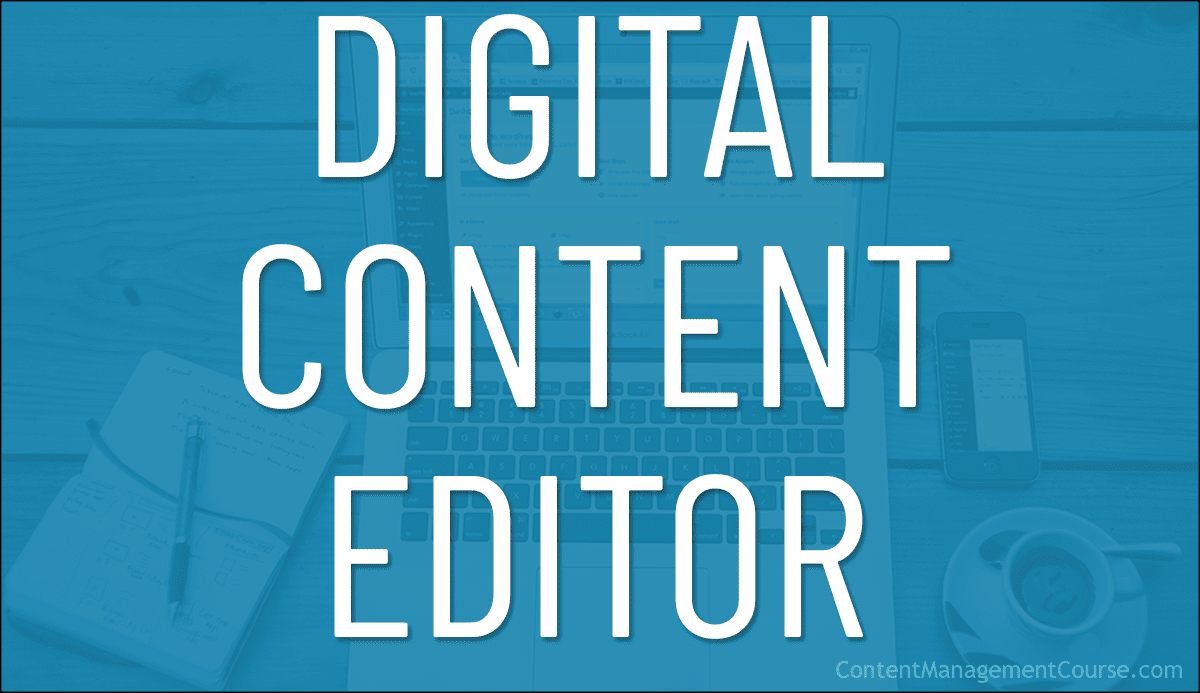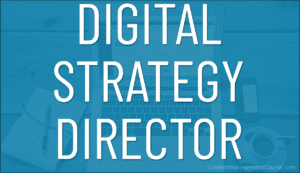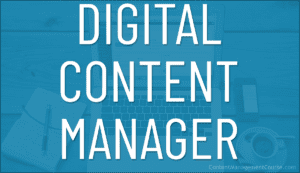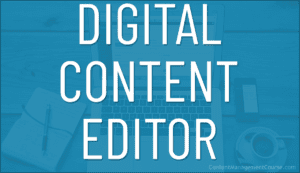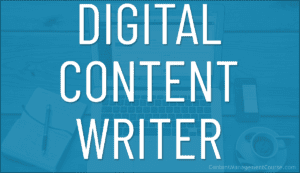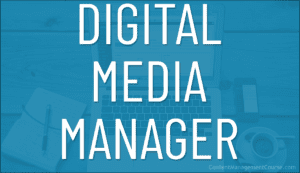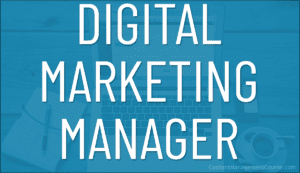Digital Content Editor
Learn about the role and responsibilities of a digital content editor.
 In this section of the Digital Business course module, we look at the role and responsibilities of a digital content editor.
In this section of the Digital Business course module, we look at the role and responsibilities of a digital content editor.
This article is part of our free content management course series where we look at various digital roles and responsibilities that a content manager may need to oversee and assume, depending on the organizational structure of the business.
***
Digital Content Editor Overview
A digital content editor is a professional who is responsible for managing and improving the quality of digital content for a brand or organization. This may include website content, social media posts, email campaigns, and online advertisements.
To be effective, a digital content editor must have strong writing and editing skills, as well as a deep understanding of the brand and its target audience. They must also be proficient in various content management tools and have a keen eye for detail.
In addition to editing and proofreading content, a digital content editor may also be responsible for managing a team of content creators and coordinators, as well as collaborating with other departments such as marketing and design. They may also be involved in developing and implementing a content strategy, which involves setting goals, identifying the target audience, and determining the most effective channels and tactics for reaching and engaging with that audience.
Overall, the role of a digital content editor is crucial in helping a brand or organization effectively communicate its message to its target audience. By ensuring that all digital content is of high quality and aligns with the brand’s overall marketing strategy, a digital content editor can help a brand effectively reach and engage with its target audience.
The video below provides an overview of the Editor role:
Source: U.S. Bureau of Labor Statistics
Digital Content Editor Role
Editors plan, review, polish, refine, and revise content for publication.
The role may also involve overseeing and coordinating multiple writing projects simultaneously. Editors focus on making sure that the content reaches a particular audience and their schedules are generally determined by production deadlines and the type of editorial position.
Editors also typically work long hours under pressure to meet production deadlines and the stress of ensuring that all published information is correct.
There are different types of editors. For example:
- Copy editor – proofread text for errors in grammar, punctuation, and spelling and check for readability, style, and agreement with editorial policy. They suggest revisions, such as changing words and rearranging sentences and paragraphs to improve clarity or accuracy. They also may carry out research, confirm sources, and verify facts, dates, and statistics. In addition, they may arrange page layouts of articles, photographs, and advertising.
- Subeditor – responsible for ensuring that all content is in line with the style guide, correcting spelling or grammatical errors, and fact-checking names, dates, and addresses. They’ll also rewrite copy if required, craft headlines, and raise any potential plagiarism issues.
- Proofreader – carefully check all content for typos or spelling errors, ensure correct punctuation, and that captions, image credits, and page numbers make sense. Also, check for style consistency.
- Assistant editors – are responsible for a particular subject, such as local news, international news, feature stories, or sports.
- Executive editors – oversee assistant editors and generally have the final say about which stories are published and how those stories are covered. Executive editors typically hire writers, reporters, and other employees. They also plan budgets and negotiate contracts with freelance writers.
In smaller organizations, a single editor may do all the editorial duties or share them with a few other team members.
Digital Content Editor Duties And Responsibilities
Digital content editors:
- Implement the organization’s content plan, develop content ideas, plan visual stories and multi-dimensional content, or evaluate submissions from writers (e.g. guest bloggers)
- Adhere to the organization’s style manuals, editorial policies, and content production guidelines.
- Work with writers and content authors to help them develop their ideas and meet their brief.
- Offer comments and suggestions to improve the content, suggesting titles and headlines, etc.
- Rewrite the text to improve comprehension, logical flow of ideas, and reader understanding, and guide the reader’s attention toward the areas that the audience should focus on.
- Cut out content that doesn’t fit with the article.
- Verify facts cited in material for publication.
- Make decisions about the layout of text, photos, and illustrations in the content.
- Ensure that all published content is free from spelling, punctuation, and grammatical errors.
- Review drafts and approve final versions.
- Assume the final responsibility for all published content.
Digital Content Editor Role Requirements
Recruitment sites advertising the role of Content Editors recommend a person with a bachelor’s degree in communications, journalism, or English, along with writing and proofreading experience.
Editors need to be proficient in computer use, including electronic publishing, graphics, web design, social media, and multimedia production.
Additionally, important qualities for the role include:
- Creativity. Editors must be imaginative, curious, and knowledgeable in a broad range of topics. Some editors must regularly come up with interesting content or story ideas and attention-grabbing headlines.
- Detail oriented. Editors must be meticulous to ensure that all material is error-free and matches the style of a publication.
- Good judgment. Editors decide whether certain stories are ethical and whether there is enough evidence to publish them.
- Interpersonal skills. In working with writers, editors must have tact and the ability to guide and encourage them in their work.
- Writing skills. Editors ensure that all written content has correct grammar, punctuation, and syntax. Editors must be able to write clearly and logically.
Full-time content editors can expect to earn between USD$60,000 to USD$65,000 a year.
Digital Content Editor Role – FAQs
Here are frequently asked questions about the role of Digital Content Editor:
What does a Digital Content Editor do?
A Digital Content Editor is responsible for managing and editing digital content across various platforms. This includes reviewing content for accuracy, clarity, and consistency, optimizing content for SEO, ensuring adherence to brand guidelines, and overseeing content publication schedules.
What are the primary responsibilities of a Digital Content Editor?
Primary responsibilities include editing and proofreading digital content, collaborating with content creators to maintain quality standards, optimizing content for search engines, ensuring content aligns with brand voice and messaging, and managing content publishing workflows.
What skills are essential for success as a Digital Content Editor?
Essential skills include strong editing and proofreading abilities, attention to detail, knowledge of grammar and style conventions, proficiency in digital content management systems, understanding of SEO best practices, excellent communication skills, and the ability to work well under pressure.
What qualifications are typically required for a Digital Content Editor role?
Qualifications often include a bachelor’s degree in English, journalism, communications, or a related field. Previous experience in editing, copywriting, or content management roles is usually required. Additional certifications in editing or content management can be advantageous.
How does a Digital Content Editor collaborate with other teams within an organization?
A Digital Content Editor collaborates closely with content creators, writers, designers, SEO specialists, and marketing teams to ensure content meets quality standards and aligns with overall marketing strategies. They provide feedback, offer guidance, and facilitate cross-functional collaboration.
What tools and technologies does a Digital Content Editor use?
Digital Content Editors use a variety of tools and technologies, including content management systems (e.g., WordPress, Drupal), editing software (e.g., Grammarly, Hemingway Editor), project management tools (e.g., Asana, Trello), and collaboration tools (e.g., Slack, Google Workspace).
How does a Digital Content Editor ensure content accuracy and consistency?
Digital Content Editors review content for factual accuracy, consistency in tone and style, adherence to brand guidelines, and alignment with audience needs. They may create style guides, establish editorial standards, and provide feedback to content creators to maintain consistency.
How does a Digital Content Editor optimize content for SEO?
Digital Content Editors optimize content for SEO by incorporating relevant keywords, writing compelling meta descriptions and title tags, formatting content for readability, and structuring content for search engine visibility. They also conduct keyword research and monitor SEO performance metrics.
How does a Digital Content Editor handle tight deadlines and shifting priorities?
Digital Content Editors prioritize tasks, manage workflows efficiently, and communicate effectively with stakeholders to meet tight deadlines and adapt to shifting priorities. They may delegate tasks, adjust schedules, or negotiate deadlines as needed to ensure timely delivery of content.
What are some challenges faced by Digital Content Editors?
Challenges may include managing large volumes of content, maintaining quality standards while meeting deadlines, keeping up with evolving SEO best practices, ensuring consistency across diverse content types, and addressing feedback from multiple stakeholders.
Digital Content Editor – Interview Questions
If you are considering applying for a role as a Digital Content Editor, here are some interview questions you may be asked:
General Questions
- Can you tell me about your background and experience in content editing?
- Why are you interested in this content editor position at our company?
Technical Skills Questions
- What editing tools and software are you proficient in?
- How do you ensure the content you edit is aligned with our brand voice and style guide?
- Can you walk me through your process for editing a piece of content from start to finish?
Content Quality and Consistency
- How do you handle editing content with conflicting viewpoints or perspectives?
- Describe a time when you had to edit a piece of content under a tight deadline. How did you manage it?
- What steps do you take to ensure factual accuracy and adherence to guidelines in the content you edit?
Collaboration and Communication
- How do you provide constructive feedback to writers and content creators?
- Can you describe a situation where you had to work closely with a team to improve a piece of content?
- How do you handle disagreements with writers or other team members regarding content changes?
Creative and Analytical Questions
- Can you provide an example of a successful content project you edited? What made it successful?
- How do you stay current with trends and best practices in content editing and digital media?
- What metrics do you use to evaluate the success of the content you edit?
Future-Oriented Questions
- What do you see as the biggest challenges in content editing over the next few years?
- How do you envision the role of a content editor evolving with advancements in AI and automation?
- What innovations or changes would you like to bring to our content editing process?
Related Roles
Content editors interact with people in other digital roles, including:
Source: https://www.bls.gov/ooh/media-and-communication/editors.htm
Useful Resources
We recommend the following resources:
Visit our tools and resources section for additional courses, guides, and helpful tools and resources.
Other Digital Content Related Roles
Click on the links below for more information about other digital content-related roles:
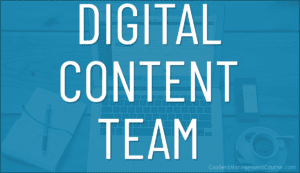
Digital Content Team
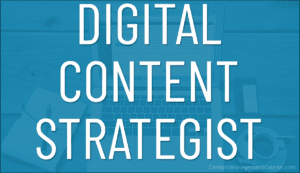
Digital Content Strategist
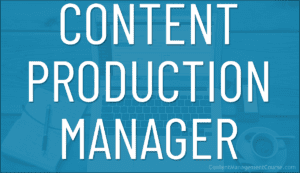
Content Production Manager
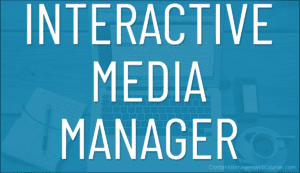
Interactive Media Manager

Internet Marketing Director

Content Marketing Specialist
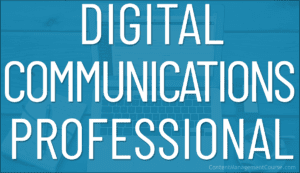
Digital Communications Professional

Search Engine Marketing Director

Internet Marketing Coordinator
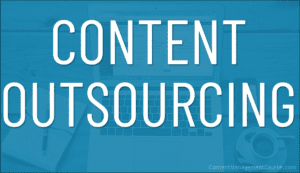
Content Outsourcing Resources

Content-Related Jobs and Careers
Return to our content management course outline
***
Image: Pixabay
